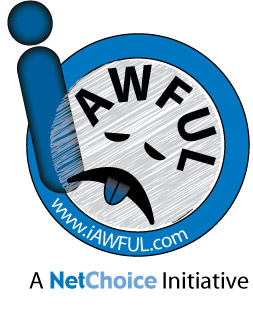There’s a hearing going on as I write on a Louisiana bill (HB 569) that would create a new tax on the Internet bills of consumers, despite the fact that there’s a federal moratorium prohibiting it.
We just heard Attorney General James D. “Buddy” Caldwell say that this isn’t a “tax”, it’s a “fee.” Louisiana is taking an interesting approach – HB 569 would impose a tax of 15 cents per month on ISP subscribers that would go to preventing and prosecuting Internet-based crimes against children. AG Caldwell claims that it is merely a “usage fee” — the price we pay for using the Internet.
But the Internet Tax Freedom Act explicitly sought to prevent the imposition of a tax that simply used different terminology. The Act defines a tax as:
(i) any charge imposed by any governmental entity for the purpose of generating revenues for governmental purposes, and is not a fee imposed for a specific privilege, service, or benefit conferred; or
(ii) the imposition on a seller of an obligation to collect and to remit to a governmental entity any sales or use tax imposed on a buyer by a governmental entity.
Under this definition, a charge on Internet access is not like a fee imposed for recording a mortgage, for example. When you pay a recording fee, you pay for the costs you impose on the government for handling your transaction. If you were to pay a “usage fee” for law enforcement to deal with online safety, you’re paying for general services, something that law enforcement/government should be doing anyway to protect the public. Continue reading →

 Recent developments have the events ticket market going paperless (tickets) and creating a paper trail (via proposed legislation).
Recent developments have the events ticket market going paperless (tickets) and creating a paper trail (via proposed legislation).

 The Technology Liberation Front is the tech policy blog dedicated to keeping politicians' hands off the 'net and everything else related to technology.
The Technology Liberation Front is the tech policy blog dedicated to keeping politicians' hands off the 'net and everything else related to technology.